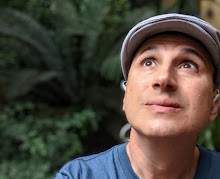Why Ex-Gay Survivors?
Over at the Gay Christian Network I received a thoughtful private message with a series of questions that I have heard before (but not quite so eloquently presented.Why are so many former ex-gay participants still so very focused on the ex-gay movement? What is it, specifically, regarding this program that causes this retro-focus? Is the “brainwashing” so thorough that it is difficult to counteract? Forgive me, but is this focus motivated by some sort of anger or indignation (which, just for the record, would be completely legitimate feelings based on what little I know regarding the ex-gay movement)?Since I am on the road, my answer is shorter than my normal rambling (and perhaps at times confusing) responses when I am at home with a pot of sweet brown rice cooking away.
How is it truly possible to move on from the ex-gay movement if, as a former participant, the ex-gay movement is still such a clear focus? Is it possible to be focused on the ex-gay movement and fully move past the negative influences of that program?
If someone has participated in the ex-gay movement and has decided that it doesn’t work, why is it necessary to focus on the movement once it has been left behind? Is the focus directed at keeping other gay people from joining the movement? Is the focus on exposing the ex-gay movement in general? What are the direct/desired results of former ex-gays focusing on the problems of the ex-gay movement?
I don’t intend offense with these questions; I’m just trying to develop a deeper understanding of the ex-gay movement and it’s effects.
As we state over at bXg, Some of us received positive help through our ex-gay experiences. We grew to understand our sexuality better and in some cases even overcame life-controlling problems.What about other folks with ex-gay experiences? What do you think? How might you answer some of the questions above?
But for most of us, these experiences brought us inner turmoil, confusion, and shame. We are still in a process of recovery from the damage. Through sharing our stories with each other, we find wholeness and healing.
Part of the reason we blog and write and talk about our experiences is so that we can unpack them to understand what we did to ourselves (and let others do to us), and so that we can undo the damage as we reclaim our lives. Some folks who have gone through ex-gay experiences, once they come out, they shove their ex-gay pasts in the closets and never process what happened to them. Many of these can get stuck and stay stuck in their personal development.
We also tell our stories as a witness and a warning to others so that they will reconsider doing the same to themselves or a loved-one.
Most of us once we tell our stories and process them, we are ready to move beyond our ex-gay experiences. Others stay a little longer to help others in their own process.
Labels: ex-gay, ex-gay survivor

2 Comments:
It's certainly possible, and important, to move beyond defining myself based on past traumas and scars.
But, we generally accept that effective recovery, of whatever flavor, is a long-term process. Behavior change and growth can happen in the first year after a life-altering decision; deeper understanding and peace continue emerging in years 2-5, even 5-10. The longer and deeper the harm, the longer and more complex the recovery process.
Based on my experience, it's important to note that consequences and harm don't always end after coming out. I didn't take an ex-gay path, but relationships with some of my family members have suffered since I came out as direct result of that decision.
Guided by the "change is possible" mantra promoted by ex-gay leaders, some of our families continue to see us as willfully abandoning a viable, simple option. Reinforced by misinformation about lgbt folks being unbalanced, unhealthy, and more, it's not unusual to hear of families who hold their gay loved ones at a distance, or shut them out altogether.
A friend of mine, at almost 60, is within easy reach of his father, several siblings, four adult children and 10 grandchildren. He has a brittle but generally OK relationship with one daughter; the other family members, though, have abruptly walked out of large gatherings rather than spend time in the same in the same public space with him.
He was married for 28 years, saw all of his kids through college. He remembers most of the birthdays. He hears about births, weddings, graduations, and family events second-hand, long after they've passed.
He weathers it all pretty well as far as I can tell, wants no pity, seldom talks about it. To me, though, his life symbolizes the experiences of many: If he woke up tomorrow and chose to be ex-gay and celibate, renouncing the dozen years in which he's been openly gay, he'd have a good shot at rejoining the family. He could probably meet the grandchildren he's only seen in pictures so far. Connect with the sons with whom he hasn't spoken in years. Drop in on a birthday party or holiday dinner.
Why is it necessary, or helpful, or growthful, or healing, for some folks to keep talking about it in some fashion? I don't see any unitary or simple answers.
Maybe it's just being authentic about what life is today, recognizing that ex-gay life and ex-gay voices continue to actively influence our relationships.
thanks Steve for this. I appreciate when you share so much of yourself and your experience.
Post a Comment
Subscribe to Post Comments [Atom]
<< Home